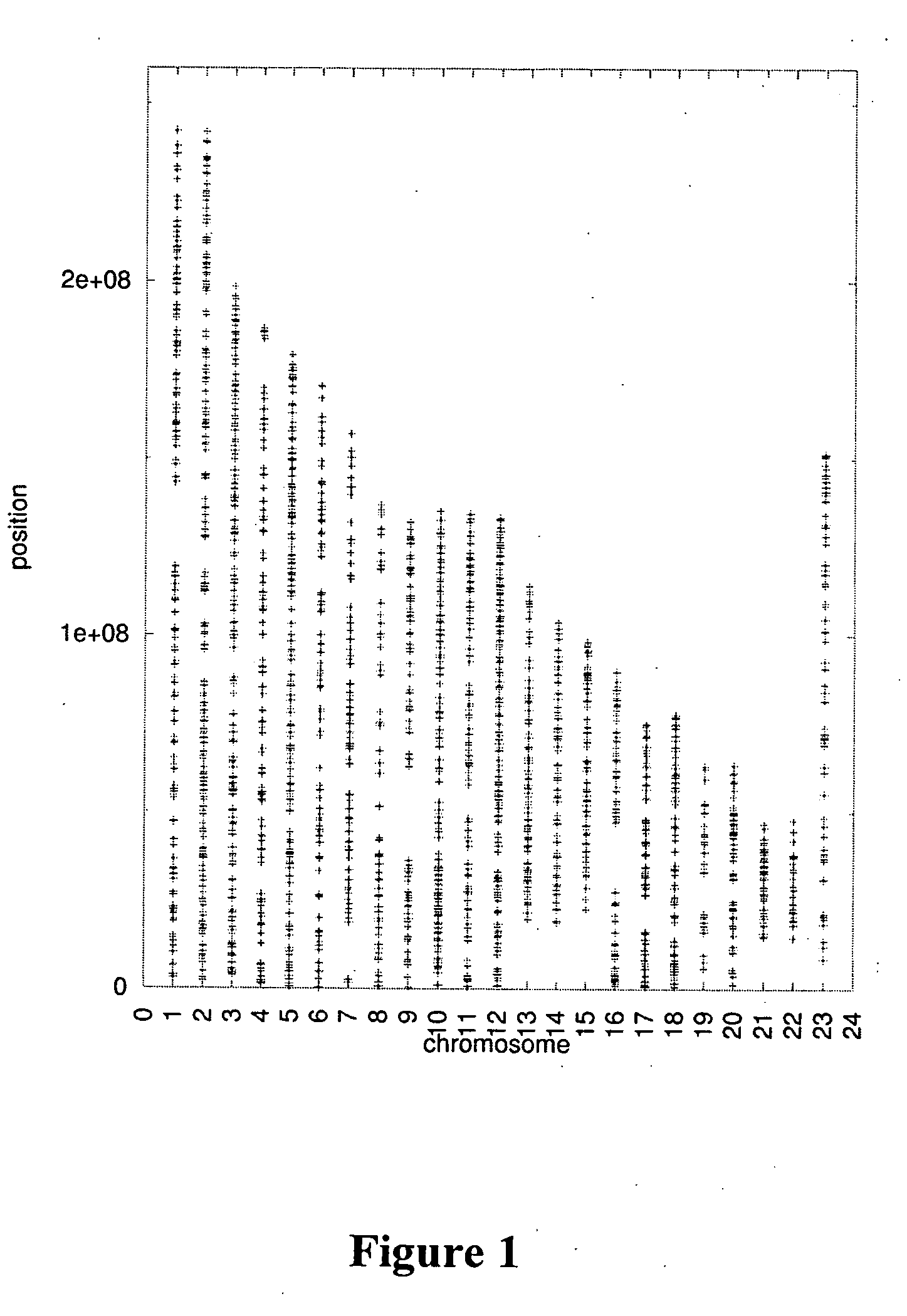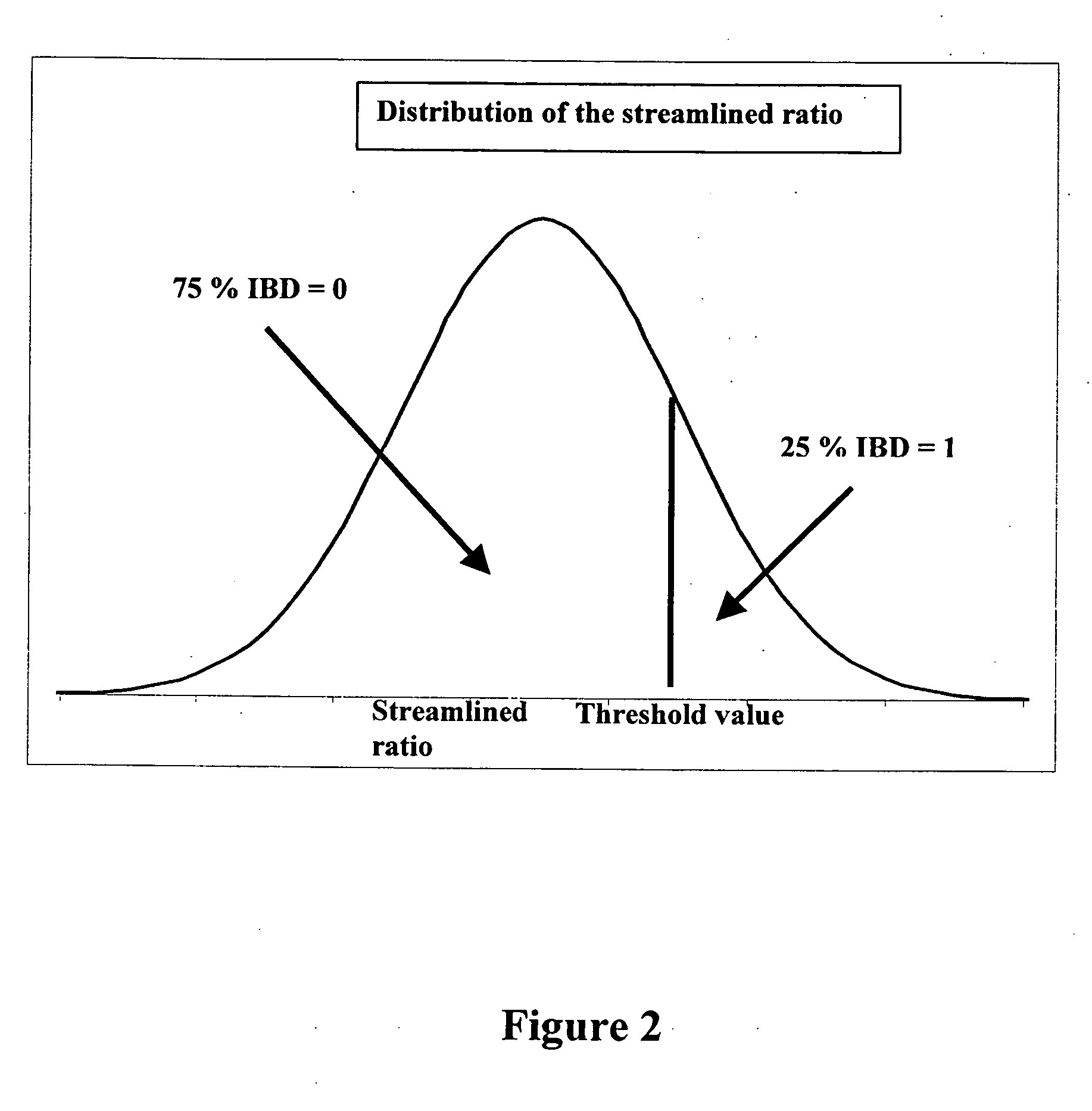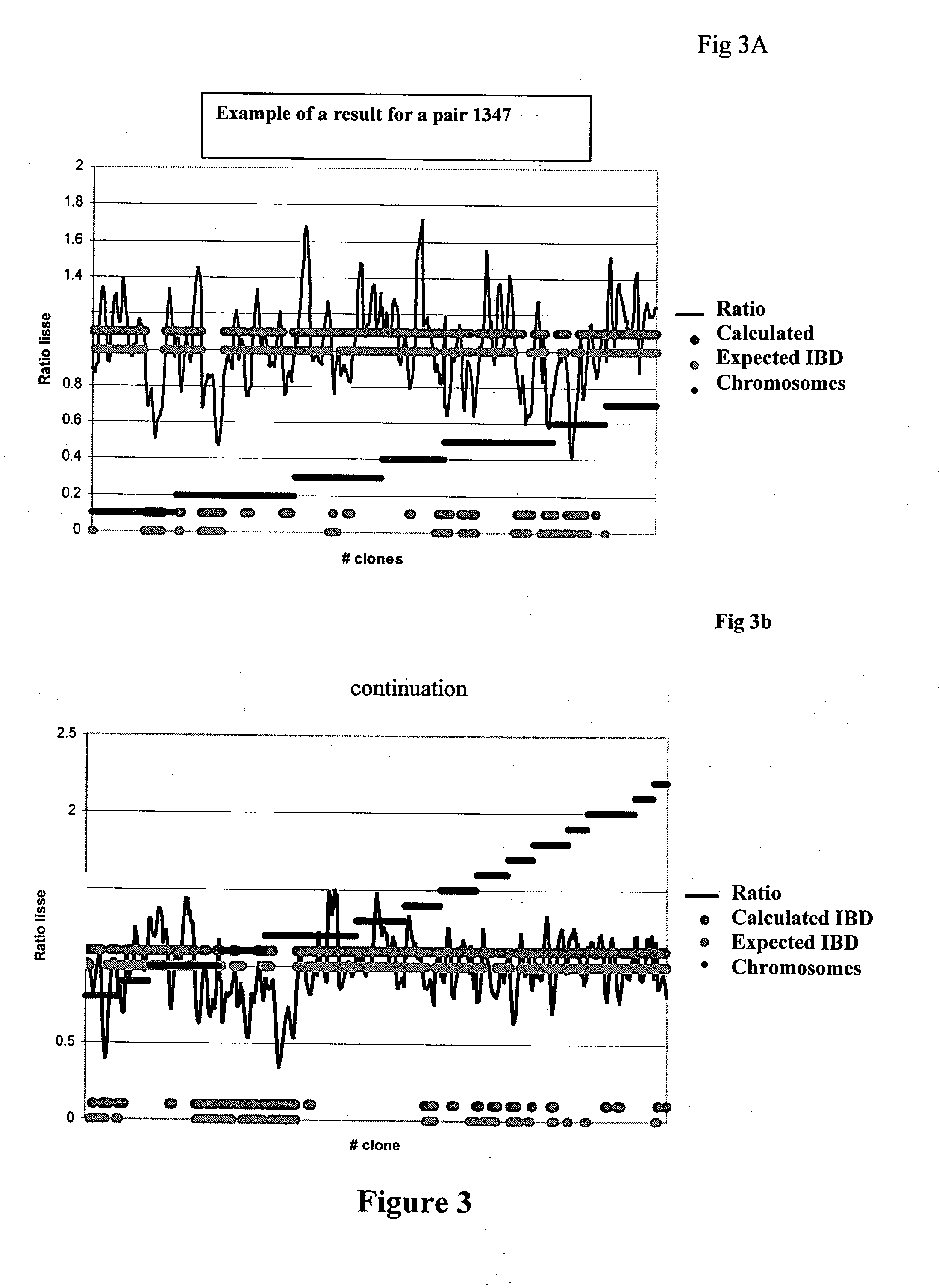Methods for preparing gene chips and use thereof
a technology of gene chips and synthesis methods, applied in the direction of biochemistry apparatus, biochemistry apparatus and processes, electrical apparatus, etc., can solve the problem that the technique is essentially limited to the synthesis of oligonucleotide biochips
- Summary
- Abstract
- Description
- Claims
- Application Information
AI Technical Summary
Benefits of technology
Problems solved by technology
Method used
Image
Examples
example 1
Selection of the Clones
[0111] For selection of the clones, the initial data used were as follows: [0112] collections of clones (Clone Registry @ NCBI) [0113] plaques containing clones (supplier) [0114] mapping of clones on the genome (Golden Path, NCBI) [0115] characteristics of the clones (STS, FISH, ACN, phase.—Golden Path, NCBI).
[0116] All of these data have been deposited in a local relational data base.
[0117] An XML format file was generated so as to serve as an access to the Clonetrek programme, which synthetically describes all of the properties of the BAC clones taken into account for the selection.
[0118] The initial selection was made from available FISH clones (i.e. clones positioned by in-situ hybridisation). We thus had a total of 76 plaques: [0119] VGC: 47 plaques (3294 clones, 2708 positioned) [0120] CSMC: 15 plaques (860 clones, 735 positioned) [0121] CCAP: 14 plaques (719 clones, 662 positioned) on the Golden Path (GP) draft of Dec. 12, 2001.
[0122] Because some ...
example 2
Producing a Chip
[0127] 2a. Preparation of the BAC Matrix
[0128] After identifying the BACs, each clone was isolated and a mini-preparation of several μg of DNA was obtained by classic methods described in the literature (e.g. the use of kits developed by Qiagen).
[0129] An aliquot of about 100 ng of DNA extracted in this way was then amplified. Numerous amplification methods such as Rolling Circle amplification (developed by Amersham) or else DOP-PCR (Degenerate Oligonucleotide Primed-PCR) can be used with enzymes such as templi Phi 29 or the taq polymerase. These amplified DNAs are then purified, for example by precipitation with ethanol or QIAGEN.
[0130] The final products are complemented with the components of a solution adapted to printing on slides. These solutions can be 3×SSC or 50% DMSO.
[0131] 2b-Slide Printing
[0132] Numerous types of slide exist on the market. In this example, we opted for slides covered with a layer of amino-silane, distributed by the company Corning (...
example 3
Hybridisation
[0141] Each slide is then subjected to a so-called pre-fixation step, the slides are treated by one of the numerous existing methods which can fix DNA non-specifically.
[0142] It can include chemical blocking of the amine groups or else incubation with bovine serum albumin and sodium docecylsulphate. In this study, we used the latter method.
[0143] For each slide, the Cy3 and Cy5 labelled DNA are mixed in a buffer solution containing formamide and other components so as to reduce non-specific hybridisation (tRNA, DNA of salmon sperm, Cot1 subscript 0, etc.). After incubation at 70° C., the probes are left for min. 1 hr at 37° C. The probe prepared in this way is then placed in contact on the slide containing the spotted BACs, then the plate is covered with a cover slip. This arrangement is then transferred to a Corning type hybridisation chamber, where several μL of H2O are deposited in each of the two wells present at the ends, making it possible to maintain a certain...
PUM
| Property | Measurement | Unit |
|---|---|---|
| diameter | aaaaa | aaaaa |
| Humidity | aaaaa | aaaaa |
| Temperature | aaaaa | aaaaa |
Abstract
Description
Claims
Application Information
 Login to View More
Login to View More - R&D
- Intellectual Property
- Life Sciences
- Materials
- Tech Scout
- Unparalleled Data Quality
- Higher Quality Content
- 60% Fewer Hallucinations
Browse by: Latest US Patents, China's latest patents, Technical Efficacy Thesaurus, Application Domain, Technology Topic, Popular Technical Reports.
© 2025 PatSnap. All rights reserved.Legal|Privacy policy|Modern Slavery Act Transparency Statement|Sitemap|About US| Contact US: help@patsnap.com



